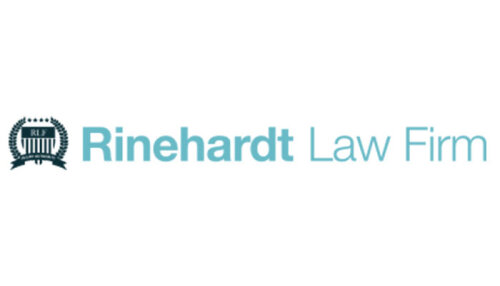Best Drugs & Medical Devices Lawyers in New York
Share your needs with us, get contacted by law firms.
Free. Takes 2 min.
Or refine your search by selecting a city:
List of the best lawyers in New York, United States
About Drugs & Medical Devices Law in New York, United States
Drugs and medical devices law in New York refers to the body of federal and state regulations that oversee the safety, efficacy, marketing, and use of pharmaceutical drugs and medical devices. This legal field covers a broad range of issues, including product liability, regulatory compliance, and litigation related to injuries or adverse effects caused by these products. Both consumers and manufacturers are subject to strict laws and guidelines designed to protect public health. In New York, these laws work alongside federal rules enforced by agencies like the Food and Drug Administration (FDA), but state-specific statutes and court decisions also play a significant role.
Why You May Need a Lawyer
Several situations may lead you to seek legal help in the area of drugs and medical devices:
- If you have suffered injuries or health complications potentially caused by a prescription drug or a medical device
- If you are a healthcare provider facing claims about improper prescription, usage, or administration of a drug or device
- If you are involved in a class action or mass tort lawsuit related to defective drugs or devices
- If you are a manufacturer or distributor facing regulatory inquiries or allegations of non-compliance with state or federal laws
- If you need help understanding your rights regarding insurance coverage and compensation related to medical products
- If you have lost a loved one due to alleged complications from drugs or medical devices
Attorneys specializing in this area can help clients navigate complex regulatory requirements, assess potential claims, and pursue compensation or defend against allegations.
Local Laws Overview
New York law interacts with federal regulations to create a robust framework for drugs and medical devices. Some of the key aspects include:
- New York follows strict product liability laws, allowing individuals to seek compensation if harmed by defective drugs or devices, regardless of fault
- The state’s statute of limitations generally gives three years for product liability actions, starting from the discovery of the injury
- New York courts may allow claims based on manufacturing defects, design defects, or failure to warn about potential risks
- Healthcare providers have specific legal obligations to prescribe and administer drugs and devices according to accepted medical standards
- State public health laws and the New York State Department of Health add another layer of regulations regarding drug approval, reporting of adverse events, and marketing practices
- New York participates in multi-district litigations for major national drug and device cases, which can affect the handling and timeline of lawsuits
Overall, both patients and industry professionals should be aware that New York law provides multiple avenues for relief, but also imposes significant responsibilities and deadlines.
Frequently Asked Questions
What should I do if I have been injured by a prescription drug or medical device in New York?
Seek medical attention immediately and save all documentation related to your injury and the product. Consult an attorney experienced in drug and device litigation to learn your rights and potential legal options.
Can I file a lawsuit if a drug or device was approved by the FDA?
Yes. FDA approval does not prevent you from filing a claim under New York law if the product was defective, poorly labeled, or unreasonably dangerous.
How long do I have to file a lawsuit for drug or device injury in New York?
Generally, you have three years from the date you discovered or should have discovered your injury. There can be exceptions, so consult a lawyer promptly.
What types of compensation can I recover in a drug or device lawsuit?
You may be able to recover compensation for medical expenses, lost wages, pain and suffering, loss of enjoyment of life, and sometimes punitive damages.
What is a class action or mass tort in the context of drugs and medical devices?
Class actions and mass torts allow groups of people harmed by the same product to pursue legal action collectively, which can streamline proceedings and increase efficiency.
Can a family member sue on behalf of someone harmed by a drug or device?
Yes. In cases of severe injury or death, immediate family members may be able to file a wrongful death or survival action.
Are pharmacies and doctors liable for drug or device injuries?
Doctors and pharmacies can be liable if they failed to provide adequate warnings, acted negligently, or dispensed/used products inappropriately. These cases depend on the specific facts.
How are recalls of drugs and medical devices handled in New York?
Recalls are primarily managed by the FDA, but state health authorities and local providers also play a role in alerting the public and ensuring compliance.
What evidence is important in a drug or device-related legal claim?
Medical records, prescription information, product packaging, receipts, and documentation of injuries or side effects are all crucial pieces of evidence.
Where can I report a dangerous drug or defective medical device?
Report adverse reactions or problems to the FDA’s MedWatch program and the New York State Department of Health. Also, retain all correspondence for your records.
Additional Resources
If you are seeking information or need to report a problem with drugs or medical devices in New York, consider these resources:
- New York State Department of Health: Information on drug safety and medical device regulations
- Food and Drug Administration (FDA): Reporting problems and finding recall information
- MedWatch: The FDA’s safety information and adverse event reporting program
- Legal Aid Societies in New York: Assistance for those with limited financial resources
- Civil Court Help Centers in New York State
- Bar Associations for lawyer referrals in the area of drugs and medical devices
These organizations can provide information, referrals, and sometimes direct assistance or advocacy.
Next Steps
If you believe you need legal assistance related to drugs or medical devices, consider the following steps:
- Gather all relevant documents, including medical records, prescriptions, receipts, and communications
- Write down a timeline of events and symptoms relating to the use of the drug or device
- Contact a lawyer experienced in drug and medical device law in New York as soon as possible to discuss your case
- Ask about free consultations and what information you should bring with you
- Follow your attorney’s advice and keep records of all communications regarding your legal matter
Act promptly, as waiting can hinder your legal options due to deadlines for filing certain claims. Consulting with a qualified attorney is the best way to protect your rights and understand the full scope of available remedies under New York law.
Lawzana helps you find the best lawyers and law firms in New York through a curated and pre-screened list of qualified legal professionals. Our platform offers rankings and detailed profiles of attorneys and law firms, allowing you to compare based on practice areas, including Drugs & Medical Devices, experience, and client feedback.
Each profile includes a description of the firm's areas of practice, client reviews, team members and partners, year of establishment, spoken languages, office locations, contact information, social media presence, and any published articles or resources. Most firms on our platform speak English and are experienced in both local and international legal matters.
Get a quote from top-rated law firms in New York, United States — quickly, securely, and without unnecessary hassle.
Disclaimer:
The information provided on this page is for general informational purposes only and does not constitute legal advice. While we strive to ensure the accuracy and relevance of the content, legal information may change over time, and interpretations of the law can vary. You should always consult with a qualified legal professional for advice specific to your situation.
We disclaim all liability for actions taken or not taken based on the content of this page. If you believe any information is incorrect or outdated, please contact us, and we will review and update it where appropriate.
Browse drugs & medical devices law firms by city in New York
Refine your search by selecting a city.
















